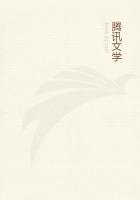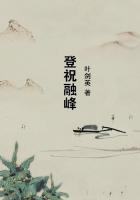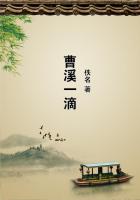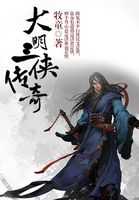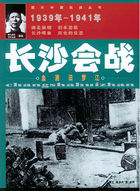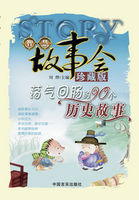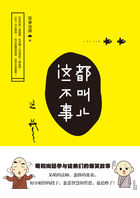Having written to the Assistant Resident of Saparua (who has jurisdiction over the opposite part of the coast of Ceram) for a boat to pursue my journey, I received one rather larger than necessary with a crew of twenty men. I therefore bade adieu to my kind friend Captain Van der Beck, and left on the evening after its arrival for the village of Elpiputi, which we reached in two days. I had intended to stay here, but not liking the appearance of the place, which seemed to have no virgin forest near it, Idetermined to proceed about twelve miles further up the bay of Amahay, to a village recently formed, and inhabited by indigenes from the interior, and where some extensive cacao plantations were being made by some gentlemen of Amboyna. I reached the place (called Awaiya) the same afternoon, and with the assistance of Mr. Peters (the manager of the plantations) and the native chief, obtained a small house, got all my things on shore, and paid and discharged my twenty boatmen, two of whom had almost driven me to distraction by beating tom-toms the whole voyage.
I found the people here very nearly in a state of nature, and going almost naked. The men wear their frizzly hair gathered into a flat circular knot over the left temple, which has a very knowing look, and in their ears cylinders of wood as thick as one's finger, and coloured red at the ends. Armlets and anklets of woven grass or of silver, with necklaces of beads or of small fruits, complete their attire. The women wear similar ornaments, but have their hair loose. All are tall, with a dark brown skin, and well marked Papuan physiognomy. There is an Amboyna schoolmaster in the village, and a good number of children attend school every morning. Such of the inhabitants as have become Christians may be known by their wearing their hair loose, and adopting to some extent the native Christian dress-trousers and a loose shirt. Very few speak Malay, all these coast villages having been recently formed by inducing natives to leave the inaccessible interior. In all the central part of Ceram there new remains only one populous village in the mountains. Towards the east and the extreme west are a few others, with which exceptions all the inhabitants of Ceram are collected on the coast. In the northern and eastern districts they are mostly Mahometans, while on the southwest coast, nearest Amboyna, they are nominal Christians. In all this part of the Archipelago the Dutch make very praiseworthy efforts to improve the condition of the aborigines by establishing schoolmasters in every village (who are mostly natives of Amboyna or Saparua, who have; been instructed by the resident missionaries), and by employing native vaccinators to prevent the ravages of smallpox. They also encourage the settlement of Europeans, and the formation of new plantations of cacao and coffee, one of the best means of raising the condition of the natives, who thus obtain work at fair wages, and have the opportunity of acquiring something of European tastes and habits.
My collections here did not progress much better than at my former station, except that butterflies were a little more plentiful, and some very fine species were to be found in the morning on the sea-beach, sitting so quietly on the wet sand that they could be caught with the fingers. In this way I had many fine specimens of Papilios brought me by the children. Beetles, however, were scarce, and birds still more so, and I began to think that the handsome species which I had so often heard were found in Ceram must be entirely confined to the eastern extremity of the island.
A few miles further worth, at the head of the Bay of Amahay, is situated the village of Makariki, from whence there is a native path quite across the island to the north coast. My friend Mr. Rosenberg, whose acquaintance I had made at New Guinea, and who was now the Government superintendent of all this part of Ceram, returned from Wahai, on the north coast, after I had been three weeks at Awaiya, and showed me some fine butterflies he had obtained on the mountain streams in the interior. He indicated a spot about the centre of the island where he thought I might advantageously stay a few days. I accordingly visited Makariki with him the next day, and he instructed the chief of the village to furnish me with men to carry my baggage, and accompany me on my excursion. As the people of the village wanted to be at home on Christmas-day, it was necessary to start as soon as possible;so we agreed that the men should be ready in two days, and Ireturned to make my arrangements.
I put up the smallest quantity of baggage possible for a six days' trip, and on the morning of December 18th we left Makariki, with six men carrying my baggage and their own provisions, and a lad from Awaiya, who was accustomed to catch butterflies for me.
My two Amboyna hunters I left behind to shoot and skin what birds they could while I was away. Quitting the village, we first walked briskly for an hour through a dense tangled undergrowth, dripping wet from a storm of the previous night, and full of mud holes. After crossing several small streams we reached one of the largest rivers in Ceram, called Ruatan, which it was necessary to cross. It was both deep and rapid. The baggage was first taken over, parcel by parcel, on the men's heads, the water reaching nearly up to their armpits, and then two men returned to assist me. The water was above my waist, and so strong that I should certainly have been carried off my feet had I attempted to cross alone; and it was a matter of astonishment to me how the men could give me any assistance, since I found the greatest difficulty in getting my foot down again when I had once moved it off the bottom. The greater strength and grasping power of their feet, from going always barefoot, no doubt gave them a surer footing in the rapid water.

